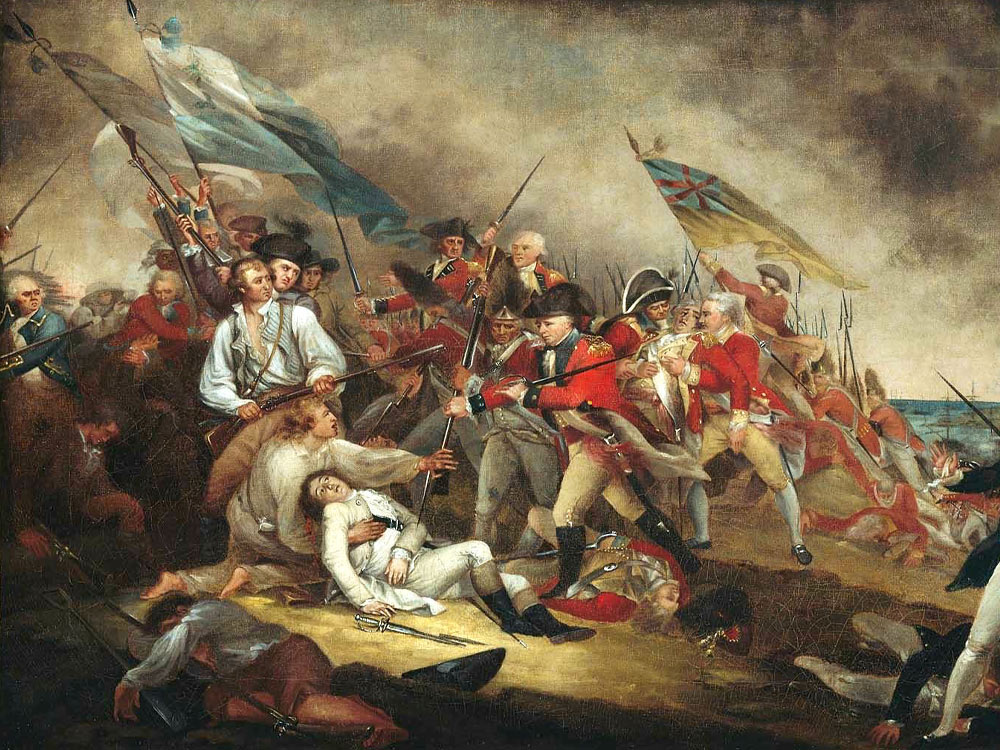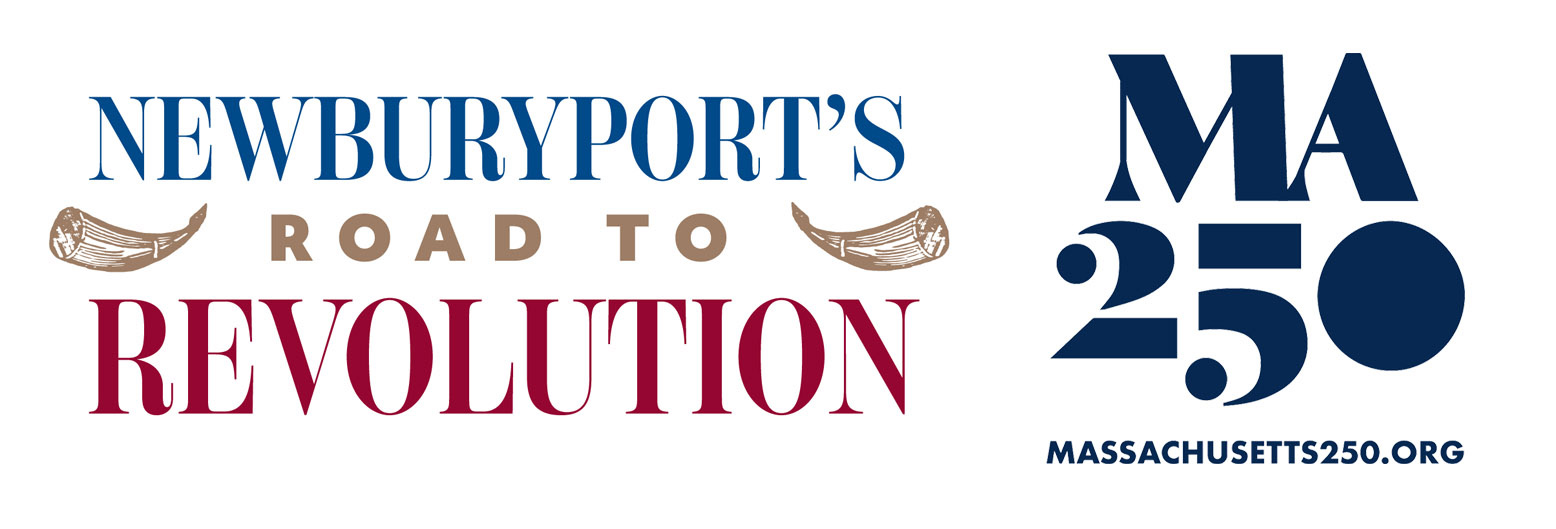Newburyport was on high alert in spring 1775. On March 27, every able-bodied man was ordered to join a militia company in town and be ready for active service.
Rumors of the battle at Lexington and Concord reached Newburyport by midday, April 19, but no definite information was received until several hours later, when a letter was sent by a messenger to Portsmouth, NH:
Newburyport, April 19, 1775.
To the Chairman of the Committee of Correspondence in Portsmouth, N. H.
Sir: This Town has been in a continual alarm since midday with reports of the Troops having marched out of Boston to make some attack in the country. The reports…concur…in having been at Lexington (and) Concord. We sent off an express this afternoon who went as far as… Danvers…He there met two or three gentlemen who affirmed the regular Troops and our men had been engaged chief of the morning, and it is supposed we had twenty-five thousand men engaged against four thousand Regulars; that the Regulars had begun a retreat. Our men here are setting off immediately…”

Under Captain Moses Nowell, a contingent of 130 men marched from Newburyport to Lexington to support the Minutemen that same day. An additional two volunteer companies were raised: one under Captain Ezra Lunt that marched to Cambridge on May 10, and another under Captain Benjamin Perkins a few days later.
Capt. Moses Little of Newbury was appointed colonel of the 12th regiment in the provincial army on June 15. Perkins’s company of 58 men and Lunt’s company of 49 men formed part of that regiment and were engaged in the Battle at Bunker Hill, one of the bloodiest battles of the entire war. Later, the regiment saw action in the New York Campaign and the battles of Trenton and Princeton. In 1779, Little was offered command of the Penobscot Expedition but turned it down. He died soon thereafter. Littleton, NH, is named in his honor.
The provincial congress requested the selectmen of Newburyport to send several barrels of gunpowder to Cambridge. Benjamin Greenleaf, chairman of the Committee of Safety, responded that the powder stock in the town was barely enough to supply the cannon on Plum Island should these be attacked by the Royal Navy, noting:
“We are therefore very loath to part with the little we have unless the public cause renders it absolutely necessary, in which case we shall readily give up the last ounce, the destruction of this Town being a trivial matter in our estimation compared with a final defeat of the army.”
Brigadier General James Brickett
Brigadier General James Brickett was born in Newbury in 1738. During the French and Indian War, Brickett was a surgeon’s mate in the regiment of Royal Americans. In 1774, now a doctor, he was elected captain of the Haverhill Militia. On April 19, 1775, his militia marched to the battles of Lexington and Concord. Brickett was wounded in the Battle of Bunker Hill on June 17, 1775, while caring for the wounded.
In 1776, he was commissioned as a Brigadier General for Essex, Cumberland and York Counties. In October 1777, Brickett commanded 1,115 militiamen from Essex County in the Battle of Saratoga. After Burgoyne’s surrender at Saratoga on 17 October 1777, General Brickett was placed in command of the escort and marched the prisoners, about 6,000 in number, from the battlefield on the Hudson River to Cambridge, Massachusetts, to be returned to England. Brickett went on to become a Haverhill Selectman from 1779 to 1782. He was Haverhill’s representative to the Provincial Congress in Boston and served on the board that authorized the Commonwealth’s constitution.
Brigadier General James Brickett-Old Newbury Chapter of the National Society Daughters of the American Revolution is named in his honor. Founded in 1896, it had four “real daughters” of revolutionary soldiers: Jane Hill Currier, daughter of Jonathan Hill of Exeter, who served under Capt. Robinson and Col. Gerrish; Ruth Ilsley Short, daughter of Moses Short of Newbury, who served under Capt. Titcomb and Col. Cogswell; Abigail Ilsley Short, also daughter of Moses Short; Lydia Lowell Pender, daughter of Paul Lowell of Georgetown, who served under captains Sewell and Jenkins, and colonels Sprout and Brewer.

Special Thanks to:


Plan Your Visit
Plan Your Visit
- Museum Hours
Sunday: 12 pm - 5 pm
Closed Monday
- Tickets
$8 admission for adults
Free for NBPT residents, kids under 12, and museum members
Cost of admission includes access to the Discovery Center.
- Parking
City parking is available adjacent to the museum. View parking lot directions.
